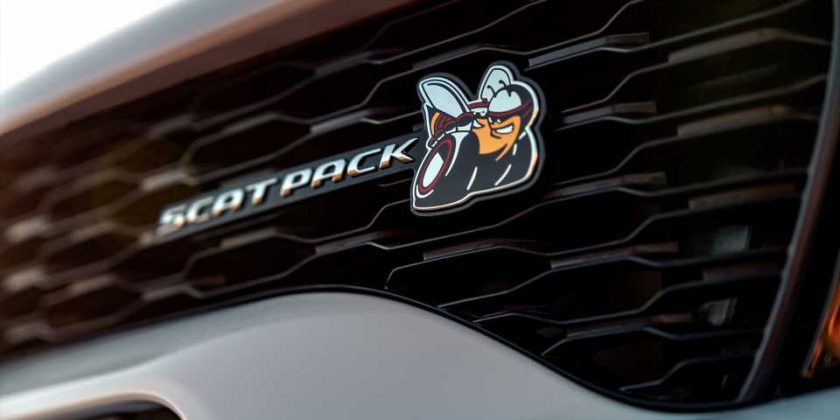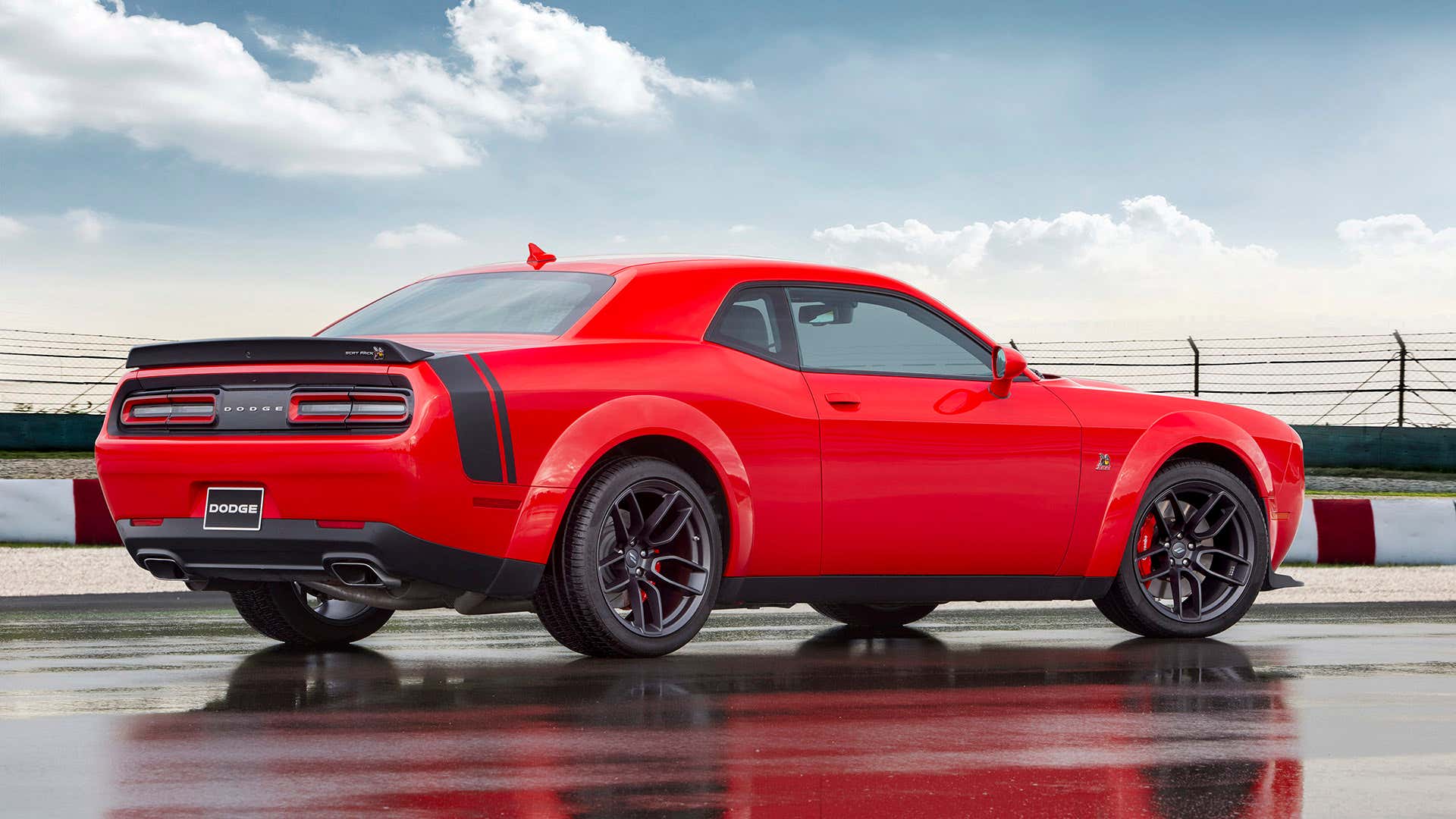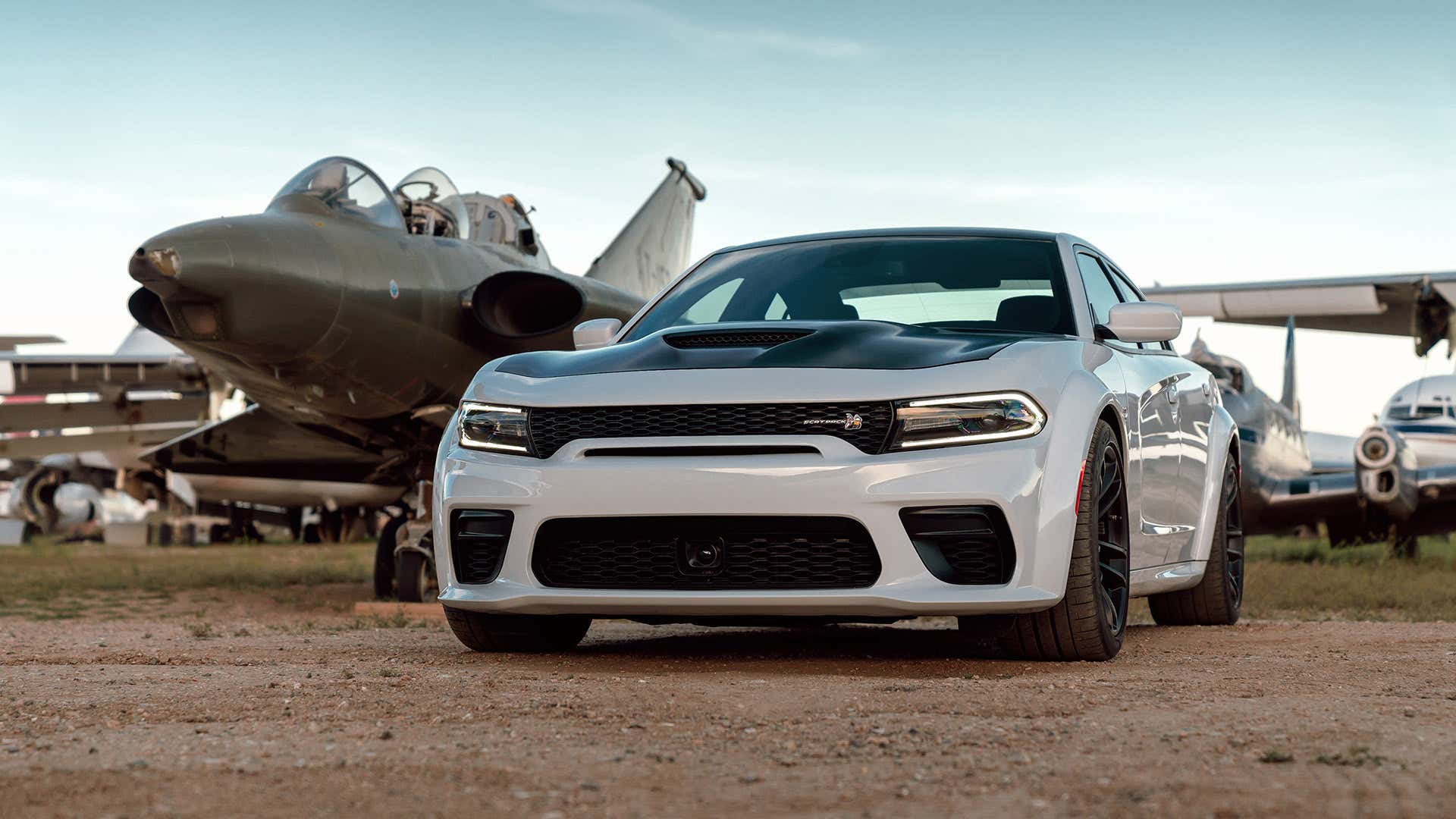The Drive and its partners may earn a commission if you purchase a product through one of our links. Read more.
Long before it introduced its clowder of hellacious big cats, Dodge had the Scat Pack. Originally used in the ‘60s and ‘70s to group-tag a collection of rowdy muscle cars, the Scat Pack moniker has since been revived as a label for trims and options packages for the Dodge Charger and Dodge Challenger.
In the modern Challenger and Charger lineups, which respectively offer 13 (Challenger) and six (Charger) different trim models for 2020, the Scat Packs occupy the spaces between the R/Ts and the Hellcats. Not too much power, not too little, just right, and at a value price.
Does a Dodge Scat Pack sound like your bowl of porridge? If so, lean in and learn more about the history of the name as The Drive answers the question, “What Is a Scat Pack?”
When Did the Scat Pack Originate?
The Scat Pack campaign was crafted in 1967 for Dodge’s 1968 lineup. After years in the archives, the Scat Pack returned as an option for the 2014 Dodge Dart, Challenger, and Charger and is still available today as a trim for the Charger and Challenger.
This bee became the Scat Pack’s mascot.
What Is a Scat Pack?
The original Scat Pack consisted of the Charger R/T, Coronet R/T, Dart GTS, and later the Coronet-based Super Bee. With the help of the Ross Roy advertising agency, the name was created as a marketing term and campaign to tout the power and performance credentials of Dodge’s ferocious crew. Entry to the Scat Pack was approved only for cars that could run the standing-start quarter-mile in the 14-second bracket.
The Scat Pack name is allegedly a play on the famed Rat Pack and aimed to foster a sense of community and loyalty. “Scat” is a verb defined as “to go away quickly” or “to move fast.” It has a second definition, too, but we won’t go into that.
Chrysler went all-out with the fixin’s, too. The company created a logo that consisted of a little racing bee with attached wheels, engine parts, a helmet, and goggles. It sounds cute, but this was a serious stamp of coolness on these cars and was later used on pins, patches, and jackets. Many of the advertisements also included the taglines, “Run with the Pack” or “the cars with the Bumblebee stripes,” referring to a stripe graphic worn around the rears of the vehicles, yet another unifier of the Scat Pack.
As part of the campaign, Chrysler also created the “Scat Pack Club,” which directly connected owners and fans, a group that was lovingly referred to as “The Hive.” Members were treated to a newsletter that detailed recent racing activities, featured tuning tips, and provided other fun information for muscle-crazed gearheads to munch on. Chrysler used the Scat Pack marketing campaign through 1971.
The Scat Pack name returned in a debut at the 2013 SEMA show. Three stages of Scat Pack tunes were introduced for the 2014 Dart, Challenger, and Charger, and for 2015, the Scat Pack name became a full-on trim. Today, Scat Pack trims are available on the Charger and Challenger as great value-horsepower options.
The Scat Pack remains an option on the Dodge Challenger.
Scat Pack FAQs
You have the questions, The Drive has the answers!
Q: How Much Does A Scat Pack Cost?
A. Including destination charges and gas guzzler fees for 2020 models, the rear-drive Charger Scat Pack starts at $41,990, the rear-drive Charger Scat Pack Widebody starts at $47,990, the rear-drive Challenger R/T Scat Pack starts at $41,490, the Challenger R/T Scat Pack 50th Anniversary starts at $46,985, the Challenger R/T Scat Pack Widebody starts at $47,490, the Challenger R/T Scat Pack Widebody 50th Anniversary starts at $52,985. Additionally, a Scat Pack Bumblebee Stripe option is available for $495.
Q: What’s The Difference Between SRT And Scat Pack?
A.SRT (Street and Racing Technology) is an internal tuning division within Dodge, a public performance brand, and a name that denotes various performance models within the Doge lineup. SRT represents several levels of performance of the Charger, Challenger, and Durango and offers the bat-poop crazy Hellcat models. Scat Pack, however, is essentially a performance trim for the Charger and Challenger.
Q: Scat Pack Or Hellcat: Which Charger Is Better?
A. “Better” is subjective, depending on budget, customer desires, and plans for the vehicle. However, if you’re looking for pure horsepower and have some money, the Hellcat and Hellcat Redeye models are the way to go.
Q: Is the Scat Pack Supercharged?
A. No, the Challenger R/T Scat Pack features a naturally aspirated 6.4-liter V8 that makes 485 horsepower at 6,100 rpm. The Challenger SRT Hellcat, however, features a supercharged 6.2-liter V8 that makes 717 horsepower. The Charger is similarly equipped, but Dodge rates the Charger Hellcat at 707 horsepower.
A widebody kit makes the Dodge Charger Scat Pack even more aggressive.
Scat Pack Fun Facts
You know you want more Scat Pack facts!
- In 1969, Dodge presented the Super Bee Scat Pak Special package on vehicles with the 383 Magnum engine. That’s not a typo, the name was actually changed to Pak, though it’s unclear why. It included a Ramcharger air hood with unique paint and chrome tie-down pins, raised white letter or redline tires, and an optional vinyl roof.
- When the Scat Pack models first hit the auto show circuit, the displays were loud and proud with cars seen in HEMI Orange, Top Banana, Go Mango, and Plum Crazy, which helped create excitement around the new brand. The early displays also featured Dodge Safety Sheriff Joe Higgins and his signature warning, “Y’all drive careful now, hear?” The 1969 Chicago Auto Show even had cutouts of his face that fans could wear.
- Several other vehicles were added to the Scat Pack at a later time, including the 340 Swinger and Charger 500 in 1969, the Demon 340 in 1971, the E-body Challenger R/T and T/A, and the Charger Daytona.
- The Super Bee was a response to the popular Plymouth Road Runner and got its logo from the Scat Pack bee mascot.
- Referred to as the “premier ambassador to the Challenger Nation,” popular Dodge dealer and salesman Bob Frederick formed The Frederick Scat Pack after the Challenger relaunched for 2008.
Featured Products
Ancel Classic Enhanced Universal OBD II Scanner
Equus Auto-Ranging Digital Multimeter
Torin Big Red Steel Jack Stands: 6 Ton Capacity
Got a question? Got a pro tip? Send us a note: [email protected]
Source: Read Full Article



